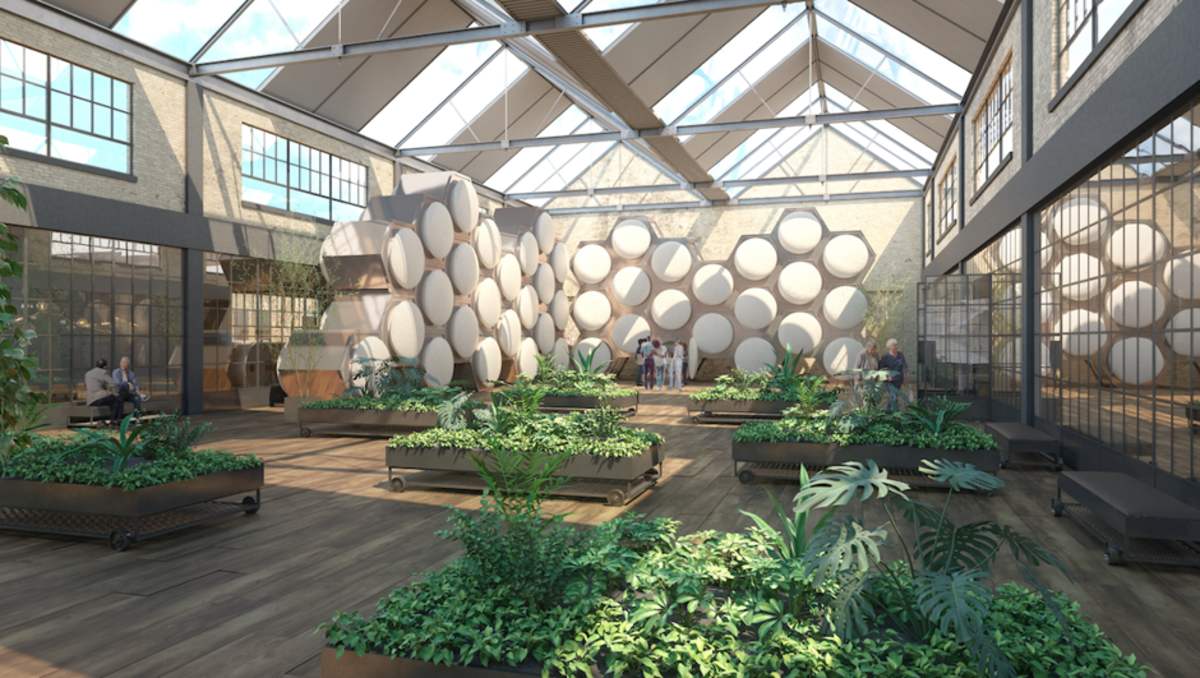
Ashes to ashes and dust to dust
Turning human remains into compost for your tomatoes
An artist's rendering of the future Recompose facility / Recompose website
The first person to be legally cremated in the United Kingdom was 71-year-old Mrs Jeannette C. Pickersgill, a well-known figure in literary and scientific circles. That was in 1885. There were two more cremations in that year, for a total of 3 out of 597,357 deaths. Now about 77% of all the dead are cremated in the UK. Cremation took off like wildfire.
A new method of disposing of human remains is getting some publicity at the moment: composting. Earlier this year Washington became the first state to allow people to be turned into compost and used in vegetable patches, amongst other uses.
The technology is simple but ingenious. A Seattle company, Recompose, manufactures hexagonal composting pods. The body is heaped with alfalfa, straw and wood chips. Oxygen is pumped in to promote decomposition. “Over the span of about 30 days, the body is fully transformed, creating soil which can then be used to grow new life,” says Recompose. The process creates about a cubic yard of fluffy compost which can taken home by relatives to help grow a tree or a garden. That’s the equivalent of about four large wheelbarrows.
The company believes that there is a spiritual dimension to composting: “By allowing organic processes to transform our bodies and those of our loved ones into a useful soil amendment, we help to strengthen our relationship to the natural cycles while enriching the earth.”
Not everyone is happy with Washington’s new law. “It’s the stupidest thing I ever heard of,” said Dennis Murphy, of Hennessey Funeral Home & Crematory in Spokane. Historian George Weigel was scathing in his analysis of the idea: “Anyone paying attention to the churnings of American politics knows that the coastal strip of the Pacific Northwest, between Eugene, Oregon, and the northern suburbs of Seattle, is an asylum of political correctness, fuelled by what a cultural anthropologist might call substitute religions.”
It's different from cremation, insisted another commenter: ‘With human-composting, the goal is to use the human body, that is to say, to instrumentalize the body, treating it as if it possesses no more intrinsic worth than fertilizer.” The state’s Catholic bishops issued a statement: “disposing of human remains in such manner fails to show enough respect for the body of the deceased.”
But Katrina Spade, the architect who is the boss of Recompose, says that composting has a much lower carbon footprint than either cremation or conventional burial. “I think one of the things for me,” she says, “in addition to that carbon savings, is just having a way to create usable soil. Something that you can go grow a tree with and have sort of this ritual around that feels meaningful.”
Michael Cook is editor of BioEdge
Creative commons
https://www.bioedge.org/images/2008images/FB_recompose.jpg
cremation
human composting
respect for bodies
- How long can you put off seeing the doctor because of lockdowns? - December 3, 2021
- House of Lords debates assisted suicide—again - October 28, 2021
- Spanish government tries to restrict conscientious objection - October 28, 2021
